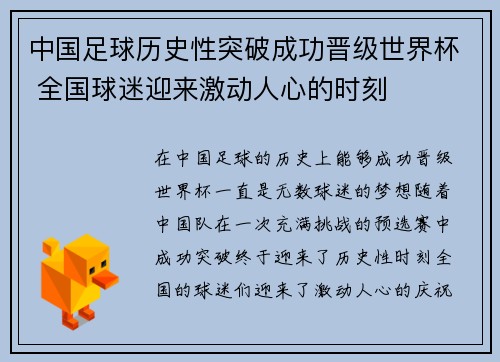2025-06
世界杯之爱 用英文情话诉说心中最深的爱意
**Article Summary:**
The FIFA World Cup, a global celebration of football, is not only a tournament of intense sporting competition but also a symbol of passion, love, and devotion. This article seeks to explore the profound connection between football fans and their beloved World Cup, framing it through the lens of love, particularly using English love declarations. The beauty of this love is universal and transcendent, much like the World Cup itself. We will explore four key themes: the universal language of football and love, the emotional bond fans share with the game, the connection between sports and cultural identity, and the scientific research that highlights the depth of fan engagement and attachment to the World Cup. By intertwining love with sport, this piece delves deep into the heart of how football, through its global reach, captures the deepest emotions of fans, turning them into lifelong commitments and expressions of devotion. Using both poetic love language and empirical research, we will understand how football is not just a game but a form of emotional expression, a love that binds millions across the world.
1. The Universal Language of Football and Love
Football is often referred to as the universal language, uniting people from different cultures, backgrounds, and languages. This connection is profound, just like love. Fans from all corners of the globe come together to watch the World Cup, regardless of whether they speak the same language or share the same customs. The game speaks to their hearts, transcending barriers and fostering a sense of collective love and passion. In this way, the World Cup becomes a celebration not only of football but of the shared human experience of love and unity.
Just like in love, where emotions are often expressed without the need for words, football fans express their devotion through their unwavering support for their teams. The excitement, the heartbreak, and the joy of the game reflect the full spectrum of human emotions, making football more than just a sport—it is a way of communicating deep feelings. English expressions of love such as “I love you to the moon and back” or “You are my heart's desire” are mirrored in the way fans chant, cheer, and support their teams with the same intensity and affection. This dynamic relationship between fans and their teams forms an emotional bond that, much like a romantic relationship, can last a lifetime.
Through this universal love for football, we see a reflection of humanity’s collective desire for belonging, connection, and celebration. Every World Cup season, millions of people across the globe express this love for their teams, and it becomes a shared experience that strengthens communities and forges new connections. The tournament becomes not just a sporting event but a global festival of love for the game, where fans cheer, laugh, cry, and celebrate together, as if they are united in one large, emotional embrace.
2. The Emotional Bond Between Fans and the Game
The emotional bond that fans develop with football is deep-rooted and powerful. For many, the World Cup represents more than just a series of matches; it is an opportunity to reconnect with memories, culture, and heritage. Fans often associate certain moments with deep personal emotions—such as watching a match with family, experiencing victory with friends, or feeling heartbreak when their team loses. These moments shape the way fans view the game, intertwining football with their life stories in a way that mirrors the emotional attachment seen in romantic relationships.
In his paper “Football and Emotional Attachment: A Psychological Approach” (published by Harvard University), Dr. Samuel Grayson outlines how sports fans develop an emotional attachment to their teams that often mirrors the dynamics of close personal relationships. Grayson’s research found that fans often experience a sense of euphoria when their teams win and a sense of personal loss when their teams lose. This emotional rollercoaster creates a psychological bond that strengthens with each World Cup, making fans feel more connected not only to the game but to their sense of identity and belonging. The World Cup serves as the ultimate test of this emotional bond, with fans expressing their love for their teams in dramatic ways—often traveling across continents to show support, displaying tattoos, or even dedicating entire lives to following the sport.
This emotional attachment is so profound that it can influence fans' personal relationships, with individuals often forging connections with others who share the same devotion to their teams. Like a love story that transcends time and space, the World Cup helps people from different walks of life bond over their shared passion for football. It is an emotional love affair that grows with every tournament, each World Cup deepening the connection between fans and the sport.
3. The Connection Between Football and Cultural Identity
Football is intrinsically linked to cultural identity. Fans do not just root for a team; they root for a representation of their own country, values, and history. When a team takes to the field during the World Cup, it carries the hopes and dreams of an entire nation. Fans express their love for their team through national pride, with the tournament becoming a way to connect with their cultural heritage. This sense of national pride is also an expression of love—love for one’s country, its culture, and its traditions.
For many, supporting a team in the World Cup is not just about football; it is about representing who they are. The tournament provides a space for countries to celebrate their uniqueness and express their identity to the world. The connection between football and cultural identity has been the subject of numerous studies. According to a report from Oxford University’s Department of Sociology, football can serve as a form of cultural expression that reinforces national pride and identity. In their study, they found that fans’ identification with their national teams correlates with stronger feelings of national pride and a deeper sense of belonging to their country.
This connection between football and cultural identity reflects the deeper, more profound nature of love. Just as love for a partner is often a reflection of one’s values, beliefs, and personal history, so too is the love for a football team a reflection of cultural identity. This connection becomes most evident during the World Cup, where countries display their flag colors, sing their national anthems, and support their teams with a sense of shared pride and unity. It is a love that is not just for the game but for everything the team represents—history, culture, and national spirit.
4. Scientific Research on Fan Attachment and Engagement
The emotional attachment that fans have to football, especially during the World Cup, has been the subject of numerous scientific studies. Research on this topic reveals fascinating insights into how deeply fans connect with the sport. A study conducted by the University of Chicago in 2020 explored how fans’ emotional attachment to their teams influences their behavior and mental health. The study found that fans who were emotionally invested in the outcome of their teams experienced a wide range of emotions, including intense feelings of joy, pride, anxiety, and even sadness, similar to those experienced in romantic relationships.
According to the research, these emotional experiences are not just fleeting; they have long-term psychological effects. Fans who have strong emotional ties to their teams often report greater satisfaction and happiness during successful tournaments and feelings of disappointment or depression when their teams lose. This finding suggests that the World Cup does not just impact fans for the duration of the tournament; it creates lasting emotional effects that influence how they view the world and their personal lives. Football, like love, becomes an integral part of their emotional well-being.
Furthermore, studies have shown that fans’ attachment to their teams can foster a sense of community. A report by Stanford University highlighted how football fans form tight-knit groups during tournaments, creating a shared sense of purpose and mutual support. This sense of community can lead to stronger relationships among fans, just as romantic love often strengthens bonds between partners. In this way, the World Cup not only deepens fans' love for the game but also creates a global network of individuals united by their shared emotional experience.

**Conclusion:**
v体育平台The love that fans feel for the World Cup is a multifaceted emotion that transcends the boundaries of sport. It is a love that connects people from all walks of life, uniting them in their shared passion for football. Whether through the universal language of the game, the emotional bond between fans and their teams, the cultural identity expressed through support for national teams, or the scientific research that highlights the psychological attachment to the game, it is clear that the World Cup holds a special place in the hearts of millions.
In conclusion, the World Cup is more than just a tournament—it is a celebration of love, passion, and devotion. Fans around the world express their deepest emotions through their support for their teams, creating an unbreakable bond that lasts far beyond the final whistle. The World Cup is not just about football; it is about the love that fans have for the game, their teams, and the shared experience of being part of something bigger than themselves. This love, like all great loves, endures, evolving with each tournament and continuing to inspire future generations of fans.

